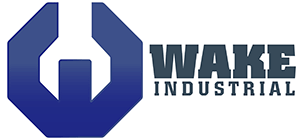Automation in Pharmaceuticals
20 April, 2020 | COVID-19, Engineer, Corona Virus, Engineering, Pharmaceuticals, Automation, Medication

The introduction of new technologies and robotics into the workplace has yielded reliable results throughout the years, increasing efficiency, worker safety, and profits while also making work easier and more accessible. With the recent rise of the novel Coronavirus, however, these advanced workplace technologies are set up to play a more prominent role than ever. After all, in a world where just being within 6 feet of each other could make people gravely ill, a possible cure can't come soon enough. Automation systems and AI are speeding things up a bit, though, helping the pharmaceutical company better wage the cruel war against COVID-19.

Machine Learning for a Cure
Other than keeping non-essential workers at home, our biggest priority is and should be on finding medicines that can treat or completely cure COVID-19. Unfortunately, this is easier said than done. Despite all we have learned in the past months, many of coronavirus' intricacies are still a mystery to us. This makes the possibility for speedy treatments or a cure feel further off than any of us would like. Ordinarily, the quest for drug development can take up to a decade, with several failures and a couple of billion dollars happening in the meantime. Machine learning is picking up the slack, though, helping to ensure coronavirus vaccines will be around to quell the crisis.
A host of companies are now embracing automated machines to predict what kind of drugs, both existing and future, could be used to treat COVID-19 patients. Deargen and Insilico Medicine are just a couple among these. The former has set to work a deep learning-based automated system called MT-DTI to simplify chemical sequences and predict whether a specific molecule of interest will bind to a protein on the COVID-19-causing virus. Headway has already been made, with the automated system identifying a handful of antivirals that might be able to work.
Meanwhile, Insilico Medicine has also had its account of success, although not with repurposing drugs. Using a somewhat similar AI-based automated platform, the company has created thousands of new molecules that could potentially bind with the proteins and block the virus from replicating. Along with this, they are using the same machine to investigate drugs that could improve the immune response of the elderly, so that they could experience far milder symptoms if exposed to the coronavirus. While still a way off from the cure we are looking for, these automated systems are leading to serious progress.

Automated COVID-19 Testing
Automated systems haven't only found themselves in the fight for a cure or treatment, however. They've also found their way into our testing efforts – and they have brought some impressive benefits along with them. Initially, the United States' coronavirus tests were done by hand. Time-consuming and technically demanding, this turned the simple testing into something far too involved for a pandemic of this scale. This is a significant reason why tests were so slow and why so few were getting tested. Nowadays, the private sector has stepped up with some companies using automated systems to test on a wider-scale and faster than before.
Roche is at the center of this trend, fairly recently given emergency approval to start a high-speed test. They've done this by using an automated system called cobas 6800/8800 to run the typical PCR test that detects the coronavirus. The result? Reliable testing in a high-volume that allows us to discover who is sick, faster. Other companies have followed suit, getting the green light to use similar systems to help process things quicker and easier. It still isn't enough, but it's a significant step for the pharmaceutical company, and our society at large, to beat this virus.
Moving Forward
Currently used to help discover possible cures and to create better, faster testing for COVID-19, automated systems will continue to find even greater uses in the days to come. Already used in creating the vaccines currently being tested for effectiveness and safety, these systems will continue to play a significant role in defeating the coronavirus, finding themselves implemented to create vaccines on a bigger and faster scale, much like what has happened with our testing.
On top of this, automated systems and robotics will likely become crucial in our pharmacies. Already used in larger centers with high prescription demand, these automated solutions will aid in packaging and dispensing the future drugs treating COVID-19 patients. In turn, this will also dramatically help free up workers to compound these medicines, creating a pharmaceutical system that can better support the people at large. Beyond this, there's no telling what all automation will impact in the fight against COVID-19, but it is sure to create drastic, far-reaching improvements.










